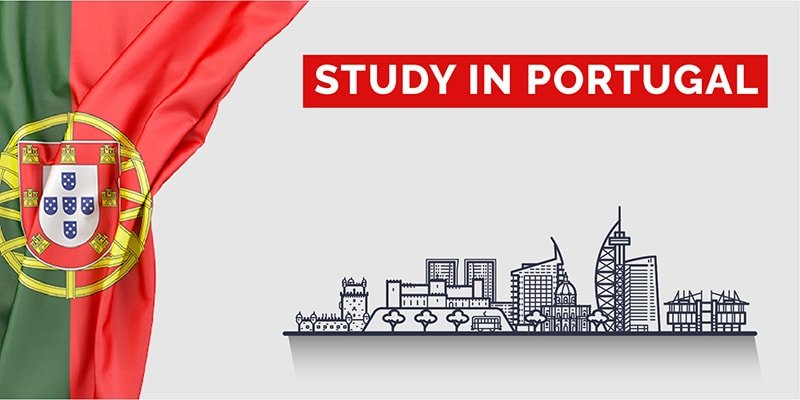Education Requirements for International Students in Portugal (2025)
1. Receiving Academic Admission from a University in Portugal
- You must obtain an official acceptance letter from a university or higher education institution in Portugal.
- Applications are generally submitted via the university’s official website or through the platform called DGES.
Documents required for academic application:
- Certified translation of high school diploma into Portuguese or English
- Transcript and GPA document
- Valid passport
- Motivation letter explaining why you want to study in Portugal
- Curriculum Vitae (CV)
- Language proficiency certificates (English or Portuguese depending on the program)
2. Language Requirements
- For Portuguese programs: A Portuguese language proficiency certificate such as CELPE-Bras must be provided.
- For English programs: English proficiency test results such as TOEFL or IELTS must be submitted.
3. Student Visa
- Students from non-EU countries must apply for a long-term Type D student visa.
- Visa applications are made through the Portuguese consulate in your home country.
Required documents:
- University acceptance letter
- Valid passport
- Biometric photos
- Financial proof that you can cover education and living expenses (e.g., bank statements)
- International health insurance
- Proof of accommodation in Portugal
- Round-trip flight ticket
4. Health Insurance
- Students must have health insurance covering the duration of their stay in Portugal.
- You can obtain international health insurance in your home country or register with the Portuguese healthcare system.
5. Proof of Financial Means
- You must provide documents proving you can cover your living expenses in Portugal:
- Bank statement with sufficient balance
- Sponsorship letter from a family member (if applicable)
6. Proof of Accommodation
- You must provide documentation of your place of stay in Portugal. This could be:
- Student dormitory
- Rented apartment
- Or staying with a host family
7. University Enrollment After Arrival
- After arriving in Portugal, you must go to the university in person and complete your enrollment with the necessary documents.
Important Notes
- Students from EU countries can study without a visa by presenting their national ID card.
- Visa applications should be made at least 3 months before the start of the academic program.
- Some universities in Portugal offer English-taught programs, which is an advantage for international students.
Are There Any Special Conditions?
- Yes, some universities may require:
- Additional entrance exams
- Or department-specific interviews
- Fields such as medicine and engineering may have additional requirements.
Education Costs for International Students in Portugal (2025)
1. Cost of Studying in Portuguese
- Studying in Portuguese is generally more affordable, especially at public universities.
Undergraduate Program (Licenciatura) Fees
- Public universities: €950 – €3,000 per year
- Private universities: €3,000 – €6,000 per year
Master’s Program (Mestrado) Fees
- Public universities: €2,000 – €4,500 per year
- Private universities: €4,000 – €8,000 per year
Doctorate (Doutoramento) Fees
- Public universities: €2,500 – €6,000 per year
- Private universities: €5,000 – €9,000 per year
Note:
- Some universities may offer discounts for students from Portuguese-speaking countries (e.g., Brazil, Angola).
2. Cost of Studying in English
- English-taught programs are generally more expensive than those taught in Portuguese.
Bachelor’s Degree Fees
- Public universities: €3,000 – €7,000 per year
- Private universities: €4,000 – €10,000 per year
Master’s Degree Fees
- Public universities: €4,000 – €8,500 per year
- Private universities: €5,000 – €12,000 per year
PhD Program Fees
- Public universities: €4,500 – €9,000 per year
- Private universities: €6,000 – €15,000 per year
Additional Notes
- Portuguese-taught programs are more common and cheaper at public universities.
- English-taught programs are especially common in business, engineering, science, and medicine, and are tailored for international students.
- Some universities may charge an application fee ranging between €50 and €150.


 العربية
العربية Türkçe
Türkçe









